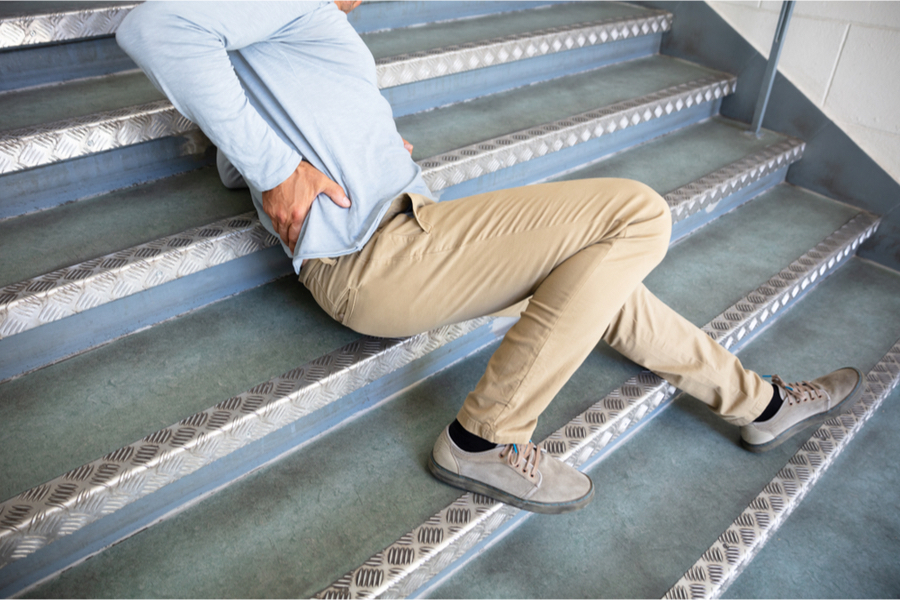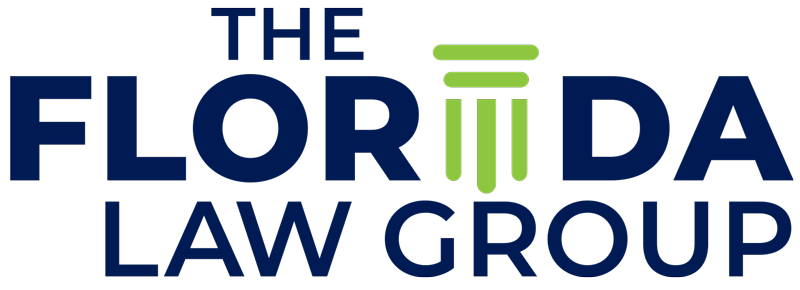Legal Terms That Injured Florida Slip & Fall Victims Need To Know

Did you slip and fall on someone else’s property? Here are some legal terms that all Florida slip & fall victims need to know in order to make the best decisions about what to do next.
If you have slipped and fallen on someone else’s property, it may not have been “just” an accident. Under Florida law, if the incident wasn’t your fault, and you sustained serious injuries, you may be able to recover damages via a slip & fall lawsuit. You deserve justice when a property owner’s carelessness led to your injury. However, sorting through all of the legal jargon can be confusing when you’re researching what to do next or are in the midst of a lawsuit and discussing the case with your lawyer. In this article, we’ll define a few legal terms that injured Florida slip & fall victims need to know so they can understand what their options are and win maximum compensation!
The Florida Law Group has recovered over $1 billion for injured accident victims statewide, including slip and fall victims. We have over 100 years of combined experience on our team. All of our Florida personal injury lawyers have extensive legal knowledge, but we always communicate with our clients clearly, on a level they can understand, in order to reduce confusion and empower them to make informed choices about their case. If you’ve been wrongfully injured after slipping and falling on someone else’s property, call our firm today to schedule a FREE consultation and learn more about how we can help you!
-
”Premise liability claims”
”Premise” is another word for “property”, and “liability” refers to legal responsibility. Premises liability claims refer to any cases where the owner of the property may be legally responsible for someone who was injured on their property. Premise liability covers a wide umbrella of case types, including slip and fall cases, but also other claims including dog bites, swimming pool accidents, elevator or escalator accidents, fires, and more. These types of lawsuits are slightly different from other types of personal injury lawsuits, like vehicular accident cases.
-
”Plaintiff”
The plaintiff is the party that brings a lawsuit against another party; if you were the victim of a slip and fall on someone else’s property, and filed a lawsuit, you would be the plaintiff. The party you file the lawsuit against – the property owner, or the property owner’s insurance company, or a third party – would be referred to as the defendant.
-
”Duty of care”
This is an especially important legal term that injured Florida slip & fall victims need to know – it refers to the property owner’s legal responsibility to make a reasonable effort to keep their property safe for visitors. The definition of “reasonable” is determined on a case by case basis, but in order to recover monetary compensation for your injuries as a Florida slip & fall victim, you must be able to prove that the property owner did not uphold their duty of care to you (among other things). Property owners may owe a different duty of care to different visitors depending on the situation.
-
”Negligence”
Negligence is what occurs when a property owner does not uphold the duty of care that visitors are owed. They either created the danger and failed to correct it, or they knew about the danger and failed to correct it. If negligence can’t be demonstrated, then the premises liability case is likely to be lost; negligence is demonstrated when the plaintiff proves that the defendant owed them a duty of care, that the defendant breached that duty of care, that the plaintiff suffered an injury, and that the defendant’s breach caused the plaintiff’s injury. In premises liability cases, “negligence per se”, which is different than ordinary negligence, may give plaintiffs a shortcut to compensation; with negligence per se, the plaintiff only has to prove that the defendant violated a public safety statute, that the plaintiff is a member of the group the statute protects, that the plaintiff’s injury is one that the statute was supposed to prevent, and that the defendant’s violation of the statute caused the plaintiff’s injury. (Basically, there was a rule broken, and that is evidence enough of negligence).
To break that down in a way that may be easier to understand, imagine that you fell in a grocery store that had a leak in the ceiling; it rained, water collected on the floor, the area wasn’t marked, and you slipped, sustaining serious injuries. If the owner had known about the leak, or should have known about the leak, then you can prove negligence – they owed you, as a shopper, a safe shopping environment (duty of care), but they didn’t provide it (breach), and their actions led to your injuries (negligence). There was no “rule” broken specifically, so you would need to prove all of the above.
But imagine that you were hunkered down inside your apartment as a hurricane approached; the winds tore the window sills out, leaving you with injuries from debris. Florida building codes strictly require all buildings to be “strapped” property, meaning that hurricane straps attach a building’s window sills to the structure to prevent that exact scenario from occurring. If the building was not strapped properly, a rule was broken. You will only need to demonstrate that the building was not strapped properly and that you were injured as a result in order to receive compensation via negligence per se.
-
”Invitee”
There are three classifications of visitors who enter someone else’s property: invitees, licensees, and trespassers. Each of these is a legal term that injured Florida slip & fall victims need to know. An invitee is someone who has the landlord/property owner’s express or implied invitation to enter the property. For example, if your boss hosts an office Christmas party and invites all of the employees and their spouses, they would be the invitees. Grocery shoppers are considered invitees, as are park visitors. Invitees are owed the highest duty of care under Florida law.
-
”Licensee”
Licensees have the landlord or property owner’s express or implied permission, but not invitation per say, to enter the property – they are visitors who come for their own purposes. For example, a salesperson would be considered a licensee. They are not owed the same duty of care as an invitee. The owner only has to warn them about conditions that may not be obvious, but does not have a duty to maintain the premises for them.
-
”Trespasser
A trespasser is a person who does not have a right to enter the property; they are owed no duty of care by the landlord/property owner, except in cases when they had reason to believe they were an invitee, or when the owner knew about their presence for more than 24 hours (making them a “discovered trespasser”), or if they were children. Florida has an “attractive nuisance” doctrine which makes property owners responsible for the deaths or injuries of any children on their property who may be trying to get to their swimming pool, playset, or other “attractive nuisance”.
-
“Statute of limitations”
Perhaps the most important legal term that injured Florida slip & fall victims need to know is this one! The statute of limitations is how long injured plaintiffs have to file a lawsuit against the defendant. In slip and fall cases, the statute of limitations in Florida is four years from the date that the incident occurred. If you miss this deadline, you will likely be unable to recover any compensation at all. That’s why it is important to contact an attorney right away after an accident!
Have questions about Florida slip and fall lawsuits, or believe you may have a case? Call The Florida Law Group for a free consultation! We have 11 office locations around the state to better serve you, and you never pay us unless we win! Recovering compensation for slip and fall injuries can be incredibly complex; you need the best, most aggressive representation possible on your side. Our law firm is ranked in the top percentage of law firms in the nation, and you can trust us to fight relentlessly for what you deserve! Call today.


